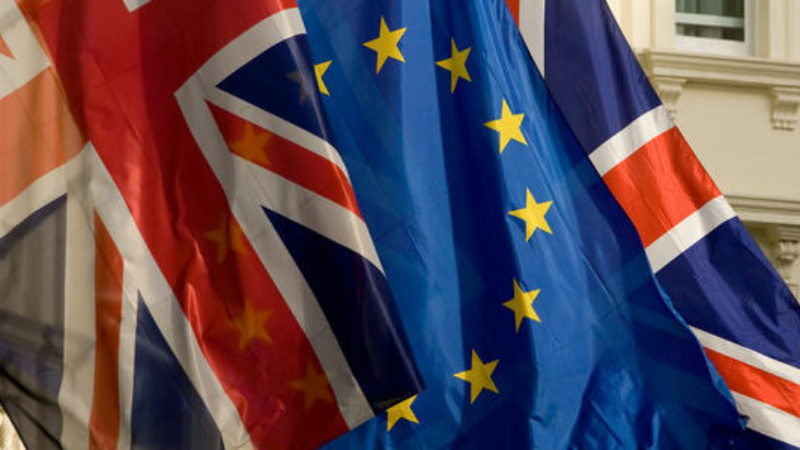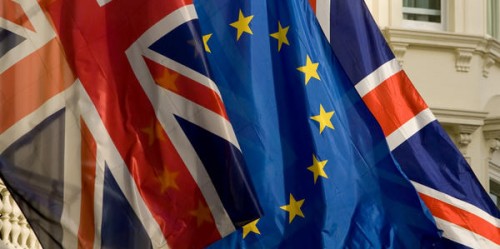

As the Tories descend into chaos over Brexit there is a tactical argument to leave them on the hook and enjoy watching them wriggle. Labour has, however, a wider duty to its members, all voters and – without being overblown – to the country.
The Labour leadership’s line is to accept Brexit as the inevitable consequence of the referendum and to salvage what it can, specifically in the social and environmental sphere.
There is no message from the leadership of what to do after Brexit. The leadership doesn’t support the Tory bombast of a “sovereign” state free trading its way to regain or retain our national economic prominence and uses the old anti-globalisation slogan of avoiding a “race to the bottom”
There remains a high suspicion that Jeremy Corbyn himself, and those close to him, are in a time-warp and believe membership of the EU will stop a domestic socialist government from taking the necessary action; this is despite evidence that the EU is powerless to stop a determined premier, most recently Emmanuel Macron in France, from acting in the “national interest” by nationalising a key industry.
There is a gathering caucus among Labour MPs for Britain to remain members of the European Economic Area (EEA) and the EU customs’ union (CU).
There are three simple, huge and inescapable problems with the EEA and customs union options. Firstly, they can only be negotiated after Brexit and secondly, to reiterate, any such arrangements will have to be agreed not only with the EU, but with the other EEA members and in addition be World Trade Organisation (WTO) compatible.
Thirdly, there is no magic off-the-shelf EEA or customs union. And any variation of EEA which allows access to the single market means trading on terms made by EU without any input from Britain. Or as the Norwegians call it “regulation by fax from Brussels” An EU customs’ union would mean accepting the EU external tariff on imports to Britain.
Assuming full Brexit could actually take us through a three year period of transition beyond 2019 this means negotiations on the EEA or customs union could stretch into any second term of a Labour government.
Such a labyrinth means Labour must face up to discussing two daunting options.
Firstly, to say boldly that staying in the EU is better than any of the other options. This will anger many and increase the sense that the political classes cannot be trusted. This is risky indeed because Labour’s election revival is based on Corbyn being and being perceived as a “different” kind of leader. But support for staying in is growing in the country.
Or secondly, to accept Brexit, as Jeremy does, and fight a rearguard action to preserve the good bits of EU law and reserving the right to vote against the eventual deal knowing that any such vote could split both Tories and Labour in Parliament. However, Brexit is Brexit but to what end?
Brexit to a “half way house” or even permanence of the EEA and customs union is far more complicated than some advocates realise, whilst being more complicated than some are prepared to admit. It would satisfy no-one and be a classic fudge.
This brings me to the least mentioned option in the general debate but one acknowledged by many trade negotiators as a viable route post Brexit, that is a free trade agreement (FTA) with the EU. This could be an appropriate way of squaring the circle which is practical and practicable. FTAs do not include free movement of people, they entail trading on mutual and negotiated recognition of standards, not simple acceptance of EU terms; and such a deal would allow British sovereignty in external trade deals provided they are compatible with WTO rules.
Labour’s carefully sat on the Brexit fence in the general election and benefited from the ambiguity of its position. But now the debate becomes more pressing and informed as the negotiations with the EU unfold. Lloyd George once said an opponent had sat so long on the fence, the iron had entered his soul; Labour’s leaders must beware that life on the Brexit fence will allow the iron to enter our brains.
Time for an open debate – in or out “warts and all” either way – a debate minus the habitual fratricidal name-calling, please.
Michael Hindley was a Labour MEP between 1984 and 1999 and acts as a trade policy advisor to the European Economic and Social Committee (EESC).




More from LabourList
‘Labour won’t stop the far right by changing leaders — only by proving what the left can deliver’
‘Cutting Welsh university funding would be economic vandalism, not reform’
Sadiq Khan signals he will stand for a fourth term as London Mayor